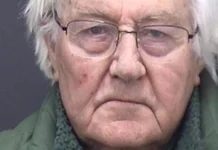CWS partners based in the Tamil Nadu state of India are asking for urgent support to protect Dalit and Tribal communities from harm.
India’s rapid surge in Covid-19 infections is overwhelming hospitals and the country’s medical system, denying many people access to treatment. Millions of people are at risk of infection and possible death. The official death toll has reached 204, 832 but the unofficial death toll is considerably higher.
Fearful of India’s second wave of Covid-19, Christian World Service partners in Tamil Nadu are anxious to protect the communities they work with from infection and hunger. They are asking for additional funding to deliver emergency food assistance and hygiene supplies as well as support for community healthcare.
These partners work with some of the poorest and most ignored communities who were more likely to die of hunger-related illnesses than Covid-19 in the first wave of the virus. Workers who depended on daily wages or what they could collect from the forest or seashore, were confined to home. The partners used their networks to share government rations, demand family entitlements from reluctant officials, and deliver emergency food packs.
The five partners have played a vital role in raising awareness about the ways people can protect themselves from infection and stop the spread of the disease. Thanks to their efforts, large networks of local groups including fish workers, Tribal (indigenous) people who live on the edge of the forests, day labourers, small farmers, scavengers (waste collectors), cremation workers, women, children have received lifesaving support.
“Yes, the situation is pretty bad with the number of cases being under reported and the availability of medicine, vaccines, oxygen, and hospital beds remains a real concern. The cases are mostly in the semi urban and urban areas and not so much in the rural areas so far. That may be due to lack of testing in those areas…all of us need to pray for the safety and security of the vulnerable groups,” said Bimla Chandrasekar, from CWS partner the Ekta Resource Centre for Women.
Manohari Doss, director of the Women Development Resource Centre says they are very worried about the situation in Madurai, Kodaikanal, Theni and Dindigul Districts where they work through local women’s sangams or associations with more than 26,000 members. They are pushing for many more vaccinations in their communities and reassuring those who may be fearful of getting the injection. WDRC wants to make sure infected families can readily receive medical treatment without fear and receive vaccinations, helping to keep the wider community safe from infection.
“We could also assist these communities to access government Covid relief measures… We would like to extend our helping hands for the distribution of personal protective devices and distribution of dry food items to our target people,” said Manohari.
LAW Trust (Legal Aid to Women) and the Human Rights Foundation noted that non-governmental organisations are now being encouraged by government to respond to this second wave of infections.
“All the civil society organizations are directed to work to create the awareness and deliver PPE (personal protective equipment) and vaccines through private and public health centres,” said Gandimathi from LAW Trust.
Donations to the CWS Coronavirus Appeal will help their trusted partner organisations on the ground in India to protect thousands of families from Covid 19 and deliver hygiene supplies and emergency food rations to people with none.
Your generous donations will help Dalit and Tribal communities:
- Share good health messages to protect people from Covid
- Fund personal protective equipment, hygiene supplies and facemasks
- Advocate for access to government food relief schemes, medical treatment, and vaccinations.
- Distribute emergency food rations to some of the many people who have received no assistance.










